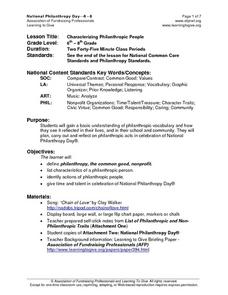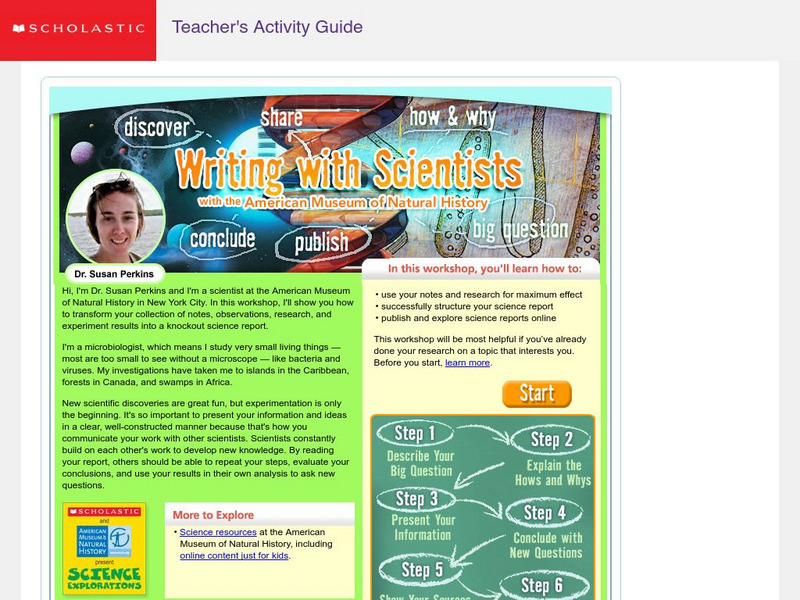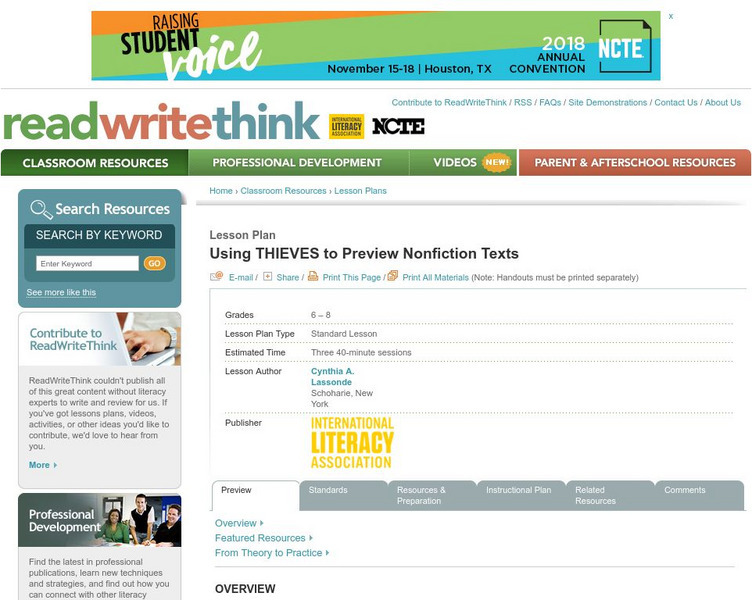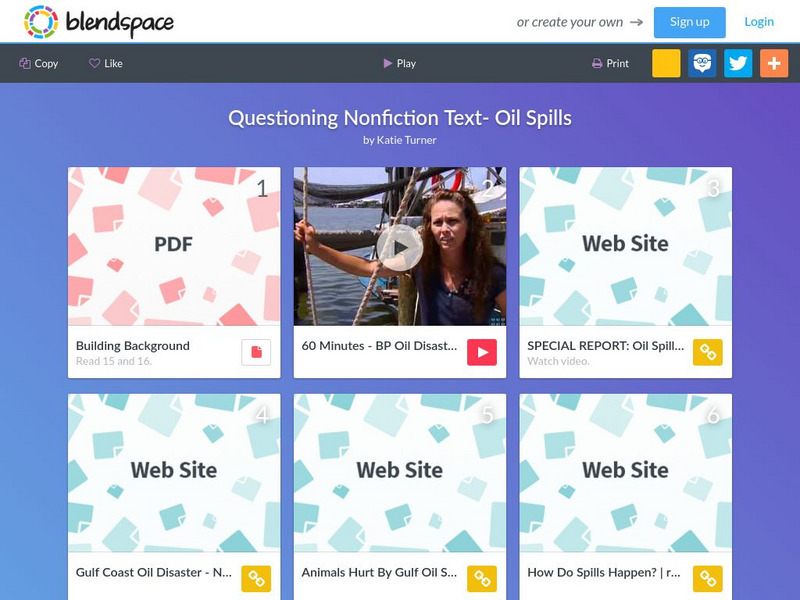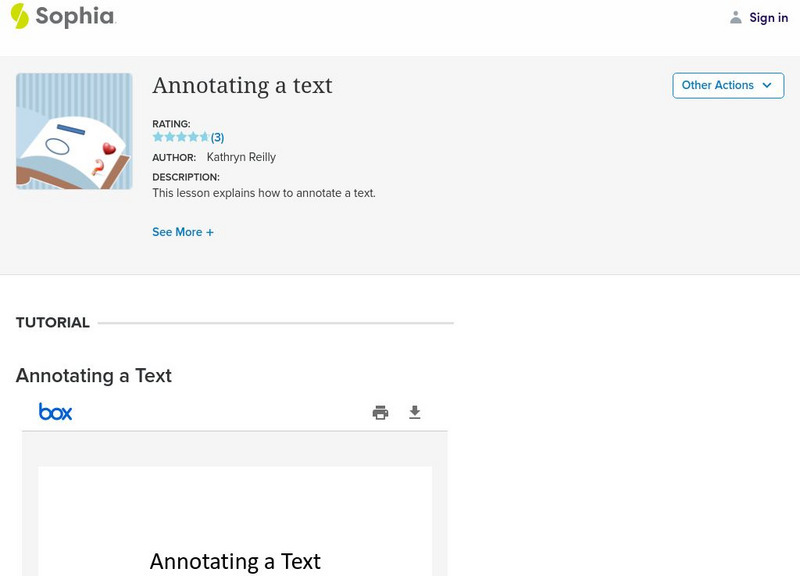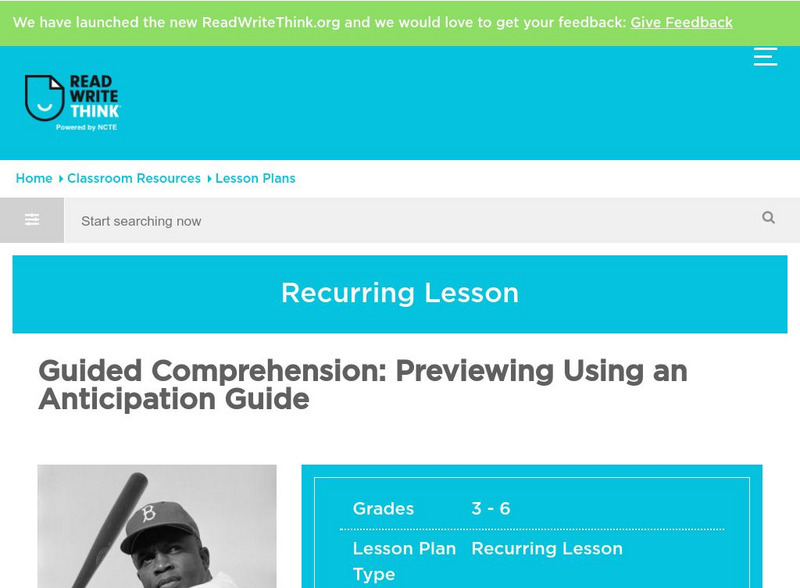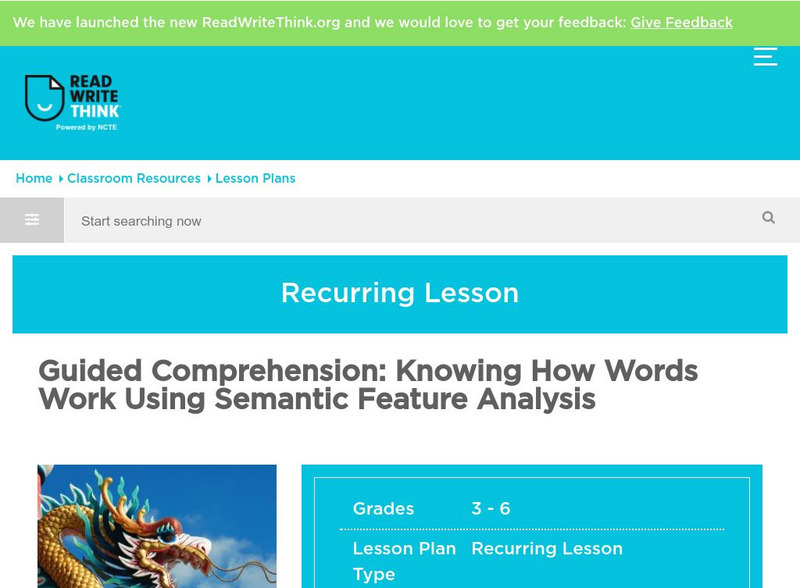Curated OER
Genre Lesson: Short Story
Stories from Sandra Cisneros' The House on Mango Street provide sixth graders with an opporltunity to identify the elements of a short story. After several modeling exercises, readers use the provided worksheet to recording information...
Curated OER
Predicting a Mystery's Solution
Who killed Sam Westing? Model for your class members the components of a good prediction, and how to use these components to predict a mystery's solution. Class members use what they have learned to craft predictions while reading Ellen...
Curated OER
Lesson One: Characterizing Philanthropic People
Familiarize your class with philanthropy and involve individuals in philanthropic activities. First, determine the traits of philanthropic people. Class members attach sticky notes with character traits written on them to each side of at...
Curated OER
Just Lookin' For a Home
What is a boll weevil? Your class can find out that and more by following the activities included here. Pupils read an article, sing a boll weevil song, add to the song with their own original lyrics, illustrate the song, study the...
Scholastic
Scholastic: Writing With Scientists With the American Museum of Natural History
Follow this six-step method and you'll have a good understanding of what a good scientific research paper involves and how it is organized. There are plenty of samples for you to look at. This explanation is also very helpful for...
ReadWriteThink
Read Write Think: Using Thieves to Preview Nonfiction Texts
Contains plans for three lessons that introduce a nonfiction prereading strategy with the acronym THIEVES, which stands for Title, Headings, Introduction, Every first sentence, Visuals and vocabulary, End Questions, and Summary. In...
TES Global
Blendspace: Questioning Nonfiction Text Oil Spills
An eight-part learning module with links to texts, videos, and websites to use while improving informational text skills through the topic of oil spills. The print materials have directed exercises for text analysis by students.
Read Works
Read Works: Passages: The Mountain
[Free Registration/Login Required] Students read a fiction text about an unexpected love and answer questions about comprehension, setting, vocabulary, transitions, and more. A paired text and questions are also available.
Read Works
Read Works: Passages: The Film Editor
[Free Registration/Login Required] Students read a nonfiction text about the job of a film editor and answer questions about comprehension, supporting details, inferencing, main idea, and more. Links to a paired text and paired text...
Sophia Learning
Sophia: Annotating Text
This slideshow focuses on the reading strategy, annotating text. It defines the term and purpose, lists types of annotation, explains what to annotate, and suggests how readers develop their own method.
CommonLit
Common Lit: Women in Ancient Rome
CommonLit.org is a wonderful resource to use in a Language Arts classroom. Each story or article is accompanied by guided reading questions, assessment questions, and discussion questions. In addition, students can click on words to see...
Other
Warren County Schools: Citing Textual Evidence
Well-organized and in-depth instructional activity on citing textual evidence and understanding inferences. Many examples are included, as well as exercises for the students to practice what they have learned. [PDF]
Better Lesson
Better Lesson: Analyzing Text Complexity of Non Fiction Sources
This lesson plan will help middle schoolers read and comprehend nonfiction, specifically biographies, through determining criteria for text complexity. Included is a PDF and Smart Notebook titled Determining Text Complexity, and an...
AdLit
Ad lit.org: Explicit Comprehension Strategy Instruction
Use explicit strategy instruction to make visible the invisible comprehension strategies that good readers use to understand text. Support students until they can use the strategies independently. Recycle and re-teach strategies...
AdLit
Ad lit.org: Extended Discussion of Text Meaning and Interpretation
Teachers should provide opportunities for students to engage in high-quality discussions of the meaning and interpretation of texts in various content areas as one important way to improve their reading comprehension.
AdLit
Ad lit.org: Content Area Literacy: Science
The demands of comprehending scientific text are discipline specific and are best learned by supporting students in learning how to read a wide range of scientific genres. Besides text structures emphasizing cause and effect, sequencing...
Curated OER
Mc Graw Hill: Use Details and Examples
Review how to use text evidence, details, examples, and personal experiences to make inferences then read a passage to practice on your own.
Polk Brothers Foundation Center for Urban Education at DePaul University
De Paul University: Center for Urban Education: I Can Infer Character Traits and Support [Pdf]
Students can use this graphic organizer while making inferences about characters in a story or history text. Students will collect text evidence in the chart to support their character trait inferences.
ReadWriteThink
Read Write Think: Guided Comprehension: Previewing
This lesson introduces students to the comprehension technique of previewing. Students use anticipation guides to preview and predict stories and work in small groups.
ReadWriteThink
Read Write Think: Guided Comprehension: Making Connections
Lesson introduces young scholars to the strategy of making connections. Students learn the three types of connections using a double-entry journal. A good resource for teachers.
ReadWriteThink
Read Write Think: Guided Comprehension: Semantic Analysis
Lesson introduces learners to comprehension of knowing how words work. Students learn semantic feature analysis and examine folktales, myths, and fables using this analysis to better understand these terms and texts.
Other
English Companion: Reading Expository Text
Taken from "Reading Reminders: Tools, Tips, and Techmiques," the information on this website provides advice on how to read, understand, analyze, and write expository texts.
International Reading Association
Reading Online Articles: Comprehension Instruction
An article on improving reading comprehension through time-tested strategies as well as a summary of new hypotheses about effective comprehension instruction.
ReadWriteThink
Read Write Think: Guided Comprehension: Summarizing
Lesson that introduces students to the comprehension technique of summarizing. Students learn using the QuIP (questions into paragraphs) method which involves organizing information and putting it in writing.




